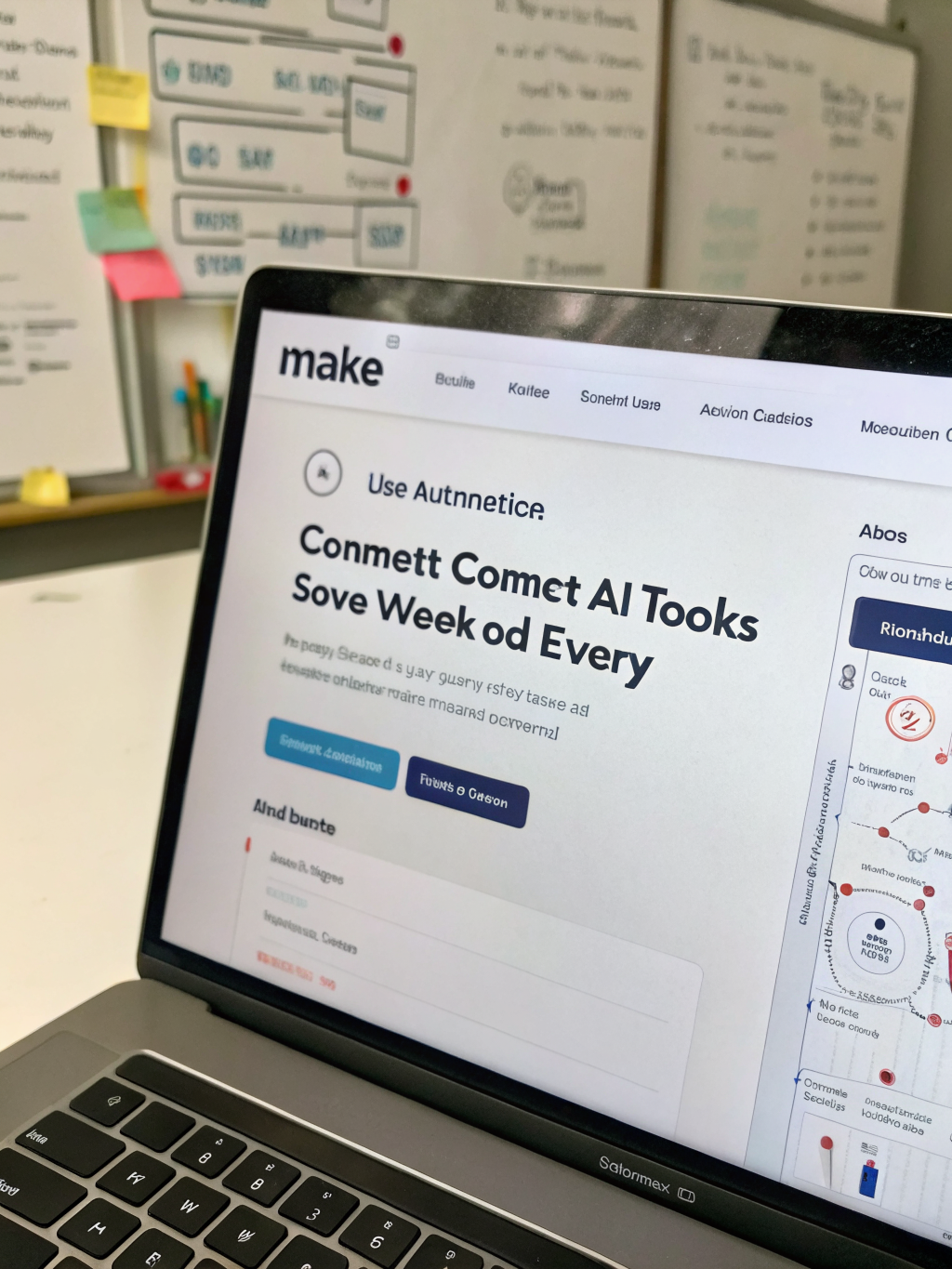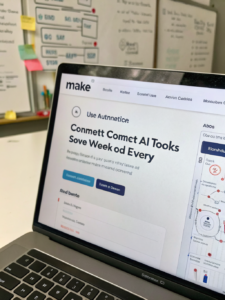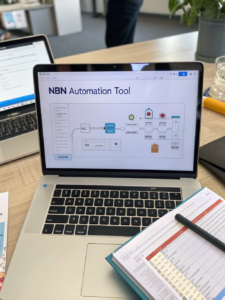Decoding AI Ethics: Navigating Ethical Considerations in AI Implementation
Navigating the Future: Ethical Considerations in AI Implementation and Beyond
The rapid evolution of artificial intelligence (AI) is reshaping industries and redefining the future of work. From sophisticated trading algorithms to personalized healthcare solutions, AI’s potential seems limitless. However, this technological leap forward brings with it a critical responsibility: addressing the profound ethical considerations AI implementation presents. As AI agents become more autonomous and integrated into our daily lives, ensuring fairness, transparency, and accountability is no longer optional – it's paramount. This post explores the key challenges, potential solutions, and emerging trends surrounding AI, its impact on finance, and the crucial need for a human-centered approach to its development. We'll delve into the intricacies of AI bias, alternative investment strategies, and the rise of AI-powered automation.

The Double-Edged Sword of AI: Opportunities and Risks
AI offers unprecedented opportunities for financial markets, investments, and personal wealth management. Algorithmic trading, powered by machine learning, can execute trades with speed and precision, identifying patterns humans might miss. AI-driven robo-advisors are democratizing investment advice, making it accessible to a wider audience. Furthermore, AI plays a vital role in risk management, fraud detection, and portfolio optimization.
However, the benefits of AI are intertwined with significant risks. One of the most pressing concerns is AI bias. AI systems learn from data, and if that data reflects existing societal biases – regarding race, gender, socioeconomic status, et cetera – the AI will inevitably perpetuate and even amplify those biases. This can lead to unfair or discriminatory outcomes in loan applications, hiring processes, and even investment recommendations. For example, an AI trained on historical stock market data reflecting past inequalities may inadvertently favor certain investment strategies, disadvantaging marginalized groups.
Unveiling AI Bias in Financial Applications
Several facets of AI bias are particularly relevant to financial applications:
- Data Bias: The data used to train AI models may be incomplete, inaccurate, or skewed, leading to biased predictions.
- Algorithmic Bias: The algorithms themselves might be designed in a way that favor certain outcomes, even without malicious intent.
- Confirmation Bias: Developers might unintentionally reinforce existing biases through their choices during the design and development process.
Addressing AI bias requires careful data curation, algorithmic auditing, and ongoing monitoring to ensure fairness and equity. Resources like AI Ethics at Mozilla provide valuable frameworks and guidelines for responsible AI development.
The Rise of AI Agents & Automation: Transforming Investment Strategies
AI agents are poised to revolutionize investment strategies, moving beyond simple algorithmic trading to more sophisticated, adaptable approaches. These AI-powered systems can autonomously execute investment decisions, manage portfolios, and even conduct fundamental analysis. Combining AI with automation allows for greater efficiency, reduced costs, and improved responsiveness to market changes.
This trend extends beyond traditional stock investments. AI agents are being deployed in alternative investment strategies such as:
- Cryptocurrency Trading: AI algorithms can analyze vast amounts of blockchain data to identify trading opportunities and manage risk in the volatile crypto markets.
- Private Equity: AI can assist in due diligence, deal sourcing, and portfolio management for private equity firms.
- Real Estate: AI can analyze market trends, predict property values, and optimize investment strategies in the real estate sector.
- Commodities Trading: Sophisticated AI models can forecast commodity prices and manage hedging strategies.
The increasing complexity of these AI-driven systems necessitates a proactive approach to risk management and regulatory oversight.
Ethical Frameworks for AI in Finance: A Path Forward
Navigating the ethical considerations AI implementation necessitates a multi-faceted approach involving industry regulations, ethical guidelines, and a commitment to transparency. Several organizations are working to develop frameworks for responsible AI development:
- The Partnership on AI: A multi-stakeholder organization dedicated to advancing responsible AI practices.
- IEEE Standards Association: Developing standards for ethical AI and algorithmic transparency.
- Financial Industry Regulatory Authority (FINRA): Providing guidance on the use of AI in financial services.
Here's a table outlining key ethical considerations and potential mitigation strategies:
| Ethical Consideration | Potential Risks | Mitigation Strategies |
|---|---|---|
| AI Bias | Discriminatory outcomes, unfair lending practices | Data auditing, algorithmic fairness testing, diverse data sets |
| Lack of Transparency | "Black box" algorithms, difficulty understanding decision-making | Explainable AI (XAI) techniques, model interpretability tools |
| Data Privacy | Data breaches, misuse of personal information | Robust data security measures, data anonymization techniques, GDPR compliance |
| Job Displacement | Automation leading to job losses in financial industries | Retraining programs, focus on human-AI collaboration, new role creation |
| Accountability | Difficulty assigning responsibility for AI-driven errors | Clear lines of responsibility, audit trails, human oversight |
Considering Alternative Investment Landscapes
Beyond traditional stocks and bonds, the allure of alternative investments is growing. These include private equity, hedge funds, real estate, and – increasingly – digital assets like cryptocurrencies. While these options often offer the potential for higher returns, they are also characterized by greater complexity and illiquidity.
AI is augmenting the analysis and management of these alternative investments. For instance, AI can assist in assessing the risk profiles of private equity deals, predicting real estate market trends, and optimizing crypto portfolio allocation. This technological support enhances informed decision-making and potentially improves performance. However, it's vital to remember that AI remains a tool, and human oversight and due diligence are still indispensable, especially considering the inherent risks associated with alternative assets.
The Future of Finance: Human-AI Collaboration
The future of finance lies not in replacing humans with AI but in fostering a synergistic collaboration. AI can automate routine tasks, provide data-driven insights, and enhance decision-making, while humans can provide critical thinking, ethical judgment, and emotional intelligence. As ethical considerations AI implementation become increasingly central to the conversation, the need for interdisciplinary expertise – combining technical skills with ethical awareness – is paramount. A human-centered approach to AI development, focused on fairness, transparency, and accountability, is crucial to unlocking its full potential while mitigating its risks.
Want to dive deeper? Share your thoughts on the role of AI in finance in the comments below! You can also read more about ethical considerations AI implementation and explore other resources on AI ethics.
Share this content:














Post Comment